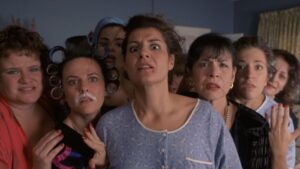
20. My Big Fat Greek Wedding (dir. Joel Zwick)
In the running for my most rewatched film ever, Nia Vardalos’s sweet-natured rom-com has endured. While it lacks the sophistication of some of the genre’s masterpieces, its comic timing and sense of identity are top-notch. It also has time for little moments of pure humanity. It’s a shame none of her other ventures – including sequels to this film – found that register.
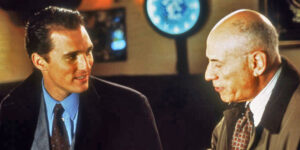
19. 13 Conversations About One Thing (dir. Jill Sprecher)
An early example of the decade’s trendy “hyperlink” movie (to borrow a phrase from the late, great Roger Ebert), it blows all the others out of the water, including a certain notorious Best Picture winner. Each of its four main characters rides high and gets laid low, and the film chronicles their journeys without judgment. But it wouldn’t work without its excellent cast, including a pre-renaissance Matthew McConaughey and the incomparable Alan Arkin, whose role as a weary insurance investigator fits him like a glove.
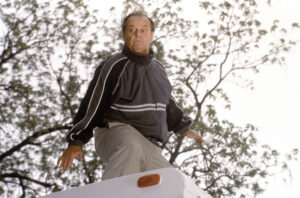
18. About Schmidt (dir. Alexander Payne)
Payne has often been accused of mocking his midwestern characters, but the joke is actually on the selfish, uptight Warren (Jack Nicholson, in his funniest role). After the death of his wife, he goes on a road trip to stop his daughter’s wedding. While his future in-laws are loud, crude and susceptible to pyramid schemes, they’re far more welcoming and vivacious than he ever was.
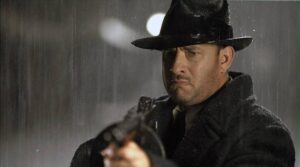
17. Road to Perdition (dir. Sam Mendes)
In what may or may not be a surprise to you, this was the first R-rated movie I saw in theaters. While it occasionally struggles with tone, this gorgeous adaptation of Max Allan Collins’s graphic novel features a powerful but restrained turn from Tom Hanks, a marvelously nasty villain role for Jude Law, and an early look at Daniel Craig’s greatness, playing the Fredo of this Irish crime family.
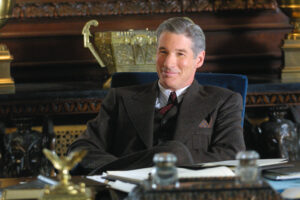
16. Chicago (dir. Rob Marshall)
Over the course of 20 years, I’ve gone back and forth on this movie. I was initially dazzled, but found it more style than substance as I grew older. Revisiting it recently, what struck me was the bone-deep cynicism, a hallmark of Kander & Ebb’s music. And while the film racked up four acting Oscar nods including a win, Richard Gere (who has somehow never been nominated) impressed the most as the gladly amoral Billy Flynn.
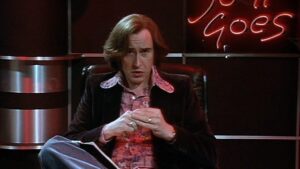
15. 24 Hour Party People (dir. Michael Winterbottom)
More biopics should follow the lead of this comedy: Some of it’s true, a lot of it’s exaggerated, and a little bit is just straight-up fiction. Steve Coogan is absolutely dynamite as the founder of Factory Records. He knows good music and how to throw a party, but knows zilch about business. It goes about as well as expected. It may not have been a sound enterprise, but it resulted in some killer tunes, as evidenced by the year’s best soundtrack.
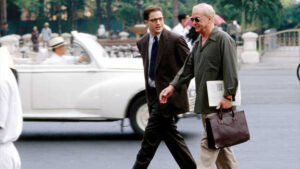
14. The Quiet American (dir. Phillip Noyce)
Graham Greene’s novel about American and European interlopers in Vietnam got a morally repugnant adaptation in 1958, with an uncredited rewrite by the CIA, making the U.S.A. the good guys. This version stays true to the novel, but it’s not as if it turns Michael Caine’s Fowler into a hero. He’s already been morally compromised, but even he can see through the flat-out evil plan pushed into action by Alden Pyle (Brendan Fraser, in one of his best roles). Shelved for a year after 9/11, it is downright anti-American. It’s also clear that it must be.

13. Punch-Drunk Love (dir. Paul Thomas Anderson)
PTA harnessed Adam Sandler’s raging man-child energy into this lovely, stunning and concise romantic comedy. Jon Brion’s score, Philip Seymour Hoffman’s unhinged turn and a nagging sense it could all go awry at any moment make for a sneakily potent film.
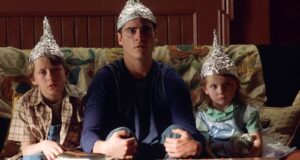
12. Signs (dir. M. Night Shyamalan)
Internal logic be damned. This is my favorite film from the man who would be “The Next Spielberg.” While some of his other films might be tighter or more daring, this is a patient, nakedly emotional film about four broken people facing an inexplicable situation. While its religious themes and implications are clear, it’s a story about faith that can be applied pretty liberally. Even if you don’t believe in God or extra-terrestrials, you can believe in each other, even in the toughest of circumstances.

11. Talk to Her (dir. Pedro Almodóvar)
Spain’s finest director finally won a long-overdue Oscar for this script about two men and the comatose women they love. But his commitment not to judge his characters becomes a challenge when one of them does something unforgivable. But that’s just one of the incredible things about this film! Even though much of it takes place in hospital rooms (and later, a prison), there’s a ton of eye-popping color. And an X-rated black-and-white film within a film is magical, provided you’re not a prude. It may not be Pedro’s greatest film, but it’s one of his most emotionally complex and thoughtful.
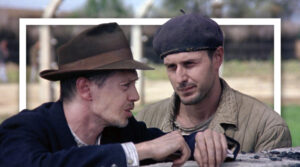
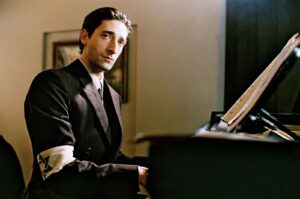
10. The Grey Zone (dir. Tim Blake Nelson) | The Pianist (dir. Roman Polanski)
What does it take to survive? For some, it’s determination and the kindness of strangers. For others, it’s collaboration and betrayal. Either way, death could come tomorrow. In the meantime, there’s hunger, disease and the massive weight of guilt that you were “lucky” enough to make it to another day. These two films about the Holocaust are unflinching, horrific and incredibly thought-provoking. They are not sentimental odes to the triumph of the human spirit. Instead, they chronicle the terrible decisions Jews had to make every single day while enduring systematic relocation, harassment and murder.

9. Monsoon Wedding (dir. Mira Nair)
A celebration of family, culture and love until it’s not. Nair and writer Sabrina Dahwan mostly focus on the joyous moments before, during and after a wedding, but they aren’t afraid to lean into the frustrations and dark secrets the preparations reveal.
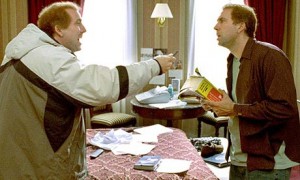
8. Adaptation (dir. Spike Jonze)
Nicolas Cage gives the best performance of his career as screenwriter Charlie Kaufman (and his much more confident, nonexistent brother Donald). Written by the actual Kaufman (with a co-writing credit to his fictional sibling), this quasi-adaptation of Susan Orlean’s The Orchid Thief has less to do with flora and more to do with writer’s block, negotiations and the danger of attempting to bring your fantasies to life. Thanks to fearless performances from Meryl Streep and Chris Cooper (in an Oscar-winning turn), there are no false notes, no matter how many surreal turns the story takes.
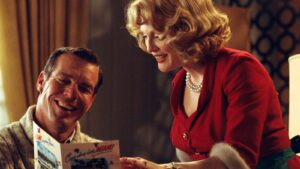
7. Far from Heaven (dir. Todd Haynes)
Though it would be five years until Mad Men premiered and another after that for the adaptation of Revolutionary Road, Todd Haynes’s tribute to Douglas Sirk’s melodramas pulled back the curtain on the perfect image of white suburbia in the 1950s. Julianne Moore plays Cathy, literally the cover girl for the ideal homemaker. But her husband (Dennis Quaid, never better) is secretly gay, hooking up with men on multiple occasions. His self-loathing furthers his descent into alcoholism, shattering their power couple status. Seeking comfort in the companionship of her gardener (Dennis Haysbert), she finds herself even more isolated from the gossipy bitches she calls her friends. Edward Lachmann’s lush cinematography was the year’s best, capturing the staid domesticity from around corners, through cracked doors and broken windows.
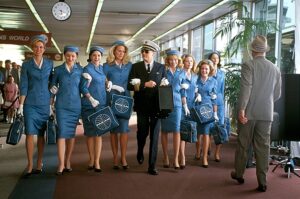
6. Catch Me If You Can (dir. Steven Spielberg)
While critics understandably called The Fabelmans Spielberg’s most personal film, all of his best qualities and persistent obsessions are on display here. Leonardo DiCaprio is simply fantastic here as the con artist/fabulist Frank Abagnale, Jr. His parents’ divorce (sound familiar?) is the wound he can’t heal, so he lies and sneaks his way to a better life, but all the money and thrills aren’t enough. Yet is this movie depressing? Not for a second! It’s a blast for more than two hours, with Tom Hanks (bad Chicago accent and all) hot on Frank’s trail. The checks may be fake but the smiles are genuine.
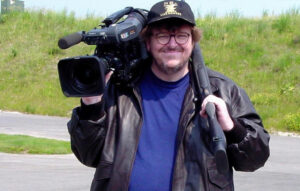
5. Bowling for Columbine (dir. Michael Moore)
Look, I get it. Few filmmakers are as smug as Michael Moore. But he’s never been more clearheaded than he was here. The Columbine High School massacre shocked the nation in 1999, and now it’s not even among the five deadliest school shootings in the U.S. Lawmakers should have done something, anything, about this uniquely American problem, but it’s only gotten worse, with many of them instead making it easier to acquire the high-powered weapons frequently used in these attacks. One day this film could fade into obscurity, a relic of a more dangerous time in American history. But until then it remains sadly timely.
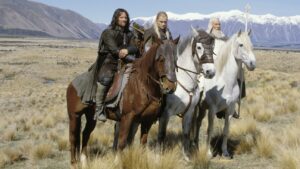
4. The Lord of the Rings: The Two Towers (dir. Peter Jackson)
Until recently, this was my favorite film of the trilogy. But it’s simultaneously truncated yet the Extended Edition is too long. What a problem to have. In the theatrical version, there’s no set-up or wrap-up, though there are a lot of new characters to introduce. But what characters! Brad Dourif is wonderfully disgusting as Wormtongue, Miranda Otto makes heroism look effortless as Éowyn, and of course Andy Serkis’s turn as Gollum is the stuff of legend. But if I was making this list solely on scenes, this would take the No. 1 spot with a bullet, as the Helm’s Deep siege still stands as one of the finest feats of action filmmaking ever.
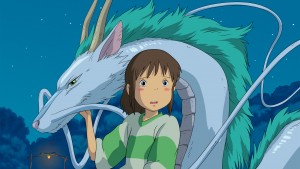
3. Spirited Away (dir. Hayao Miyazaki)
Still the only anime film to win the Best Animated Feature at the Academy Awards, Hayao Miyazaki’s swirl of Japanese folklore and classic children’s stories might be the most messed-up film on this list. At turns, beautiful, sad and revolting, it’s a terrific way to introduce your kids to the master’s work and themes (including anti-capitalism).
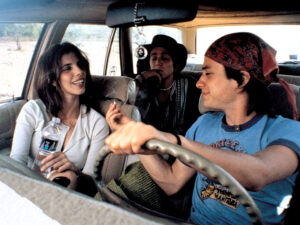
2. Y tu mamá también (dir. Alfonso Cuarón)
Few movies before or since are as sexy, funny and devastating. Released amid the backdrop of the rapidly changing Mexican political landscape, it’s a perfect snapshot of a moment in time that seemed filled with hope and possibility that would vanish just as quickly.

1. 25th Hour (dir. Spike Lee)
Spike Lee’s best movie of a hit-or-miss decade took David Benioff’s debut novel – about a drug dealer’s last day before prison – and turned into an elegy for a city that would never be the same after 9/11. Stuffed to the gills with tremendous performances, it’s a major deflation of macho stereotypes, exploring male fears, weaknesses and friendships. It gets better every time I watch it.
HONORABLE MENTIONS
About a Boy (dirs. Chris Weitz, Paul Weitz)
Auto Focus (dir. Paul Schrader)
The Bourne Identity (dir. Doug Liman)
Changing Lanes (dir. Roger Michell)
Femme Fatale (dir. Brian De Palma)
Frida (dir. Julie Taymor)
The Hours (dir. Stephen Daldry)
Insomnia (dir. Christopher Nolan)
The Kid Stays in the Picture (dirs. Nanette Burstein, Brett Morgen)
Minority Report (dir. Steven Spielberg)
One Hour Photo (dir. Mark Romanek)
Panic Room (dir. David Fincher)
Secretary (dir. Steven Shainberg)
Spider (dir. David Cronenberg)
Spider-Man (dir. Sam Raimi)